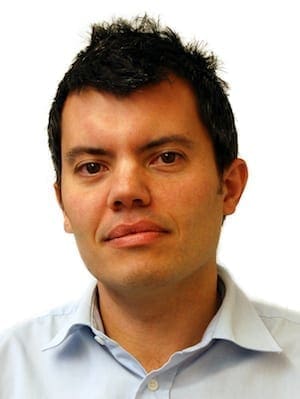Baptists in the United Kingdom learned how Baptists in Lebanon have responded to the refugee crisis during the Baptist Union of Great Britain’s annual assembly on May 14.
A video featuring the story of Ali, a taxi driver from Aleppo, was shown during the assembly.
His family was “happy, quite well off,” he said, “then we had to flee the bombings, deaths and terrorists.”
Ali and his family are among the 1.2 million Syrians in Lebanon.
The film showed how churches supported by BMS World Mission are providing vital food parcels to the Syrians, and how one has set up a school that now teaches 300 children and “has given an escape from the war,” one parent said.
Mary Taylor, regional minister in the Yorkshire Baptist Association, highlighted some of the different, real-life journeys refugees had made.
One person she quoted needed three attempts to reach Greece, the second of which had resulted in the flimsy boat capsizing.
“I was picked from the water, but not all were. That terrible memory was with me for my third successful journey.”
Uprooted by war, having spent so long in the refugee camps, the person traveled through Europe “cold, wet, frightened,” not knowing at any stage of the journey what would be happening next.
People have been arriving on our shores seeking refuge in increasing numbers since 2001, Taylor said.
“Often asylum seekers are portrayed as scroungers, terrorists. The truth is behind every asylum seeker is a human story. They were strangers, strangers God commanded me to care for; they are also the neighbors I am learning to love as myself.”
Tony Peck, general secretary of the European Baptist Federation (EBF), highlighted how Baptists are responding across the region to the refugee situation. The EBF has mapped those responses.
Among the many stories he highlighted was the response of Croatian Baptists. Many had been refugees in the Balkan war 20 years previously, and therefore felt empathy as people began to stream through their country.
Though a small Baptist union, in a short time they “effectively mobilized.” They set up a well-organized camp for the many passing through their country, which at its peak was 5,000 people every 48 hours.
Rhaea Russell-Cartwright, a member of John Bunyan Baptist Church in Oxford, England, spoke of a visit to the camp often referred to as the “jungle” in Calais, France.
The first myth to destroy is the use of the word jungle. There was both an overwhelming sense of calmness and a sense of community when she visited. There was humor, but sadness was also prominent
Simon Jones, minister of Bromley Baptist Church, southeast of London, helped to give a biblical perspective to the situation.
He said the plight of the people in Calais was similar to those exiled in Babylon, and his instinct was to go and see what was happening. Jones has been visiting since October.
With humanitarian assistance being organized, it soon became apparent there was a need for a peacemaking presence in the camp.
He and two others seek to maintain relationships in the camp and to be a sounding board for the volunteers.
Some people say he takes God into the jungle. “No,” Jones said, “he’s already there and when I turn up he says, ‘Glad to see you.'”
It was Jeremiah’s hope that those driven into exile would find a place of fruitful encounter – that they would find something of the “shalom” of God.
This has been demonstrated in people like Samir, a Muslim man, who organizes communal eating, Jones said. He believes people who share the same table don’t want to fight each other.
Lynn Green, general secretary of the Baptist Union of Great Britain, and David Kerrigan, general director of BMS World Mission, introduced a shared commitment to refugees, explaining the biblical roots that underpinned the words in the commitment: the theme of welcoming the stranger, caring for the least of these (Matthew 25: 34-46), God shaking the nations (Haggai 2:6-7), and being reminded of God’s justice (Amos).
The commitment read:
“We stand together and we stand with those who would welcome the stranger,
And we stand in common humanity with those who some would call stranger.
We recognize the cost to us of building communities of refuge,
But dare to believe that the values of God’s Kingdom are of greater worth.
We celebrate the courage of those who come seeking refuge, acknowledging our common humanity and believe that God is at work within us,
And we will seek God’s purposes even in the midst of human chaos and tragedy.
We long for a different story; defined by justice and mercy.
We place self-interest aside and will live as citizens of heaven in the midst of this earthly story.”
 Paul Hobson is editor of The Baptist Times of Great Britain – the online newspaper of the Baptist Union of Great Britain. A longer version of this news article first appeared in The Baptist Times and is used with permission. You can follow him on Twitter @PaulHobson10, The Baptist Times @BaptistTimes and the Baptist Union @BaptistUnionGB.
Paul Hobson is editor of The Baptist Times of Great Britain – the online newspaper of the Baptist Union of Great Britain. A longer version of this news article first appeared in The Baptist Times and is used with permission. You can follow him on Twitter @PaulHobson10, The Baptist Times @BaptistTimes and the Baptist Union @BaptistUnionGB.
Paul Hobson is editor of The Baptist Times of Great Britain, the online newspaper of the Baptist Union of Great Britain.

